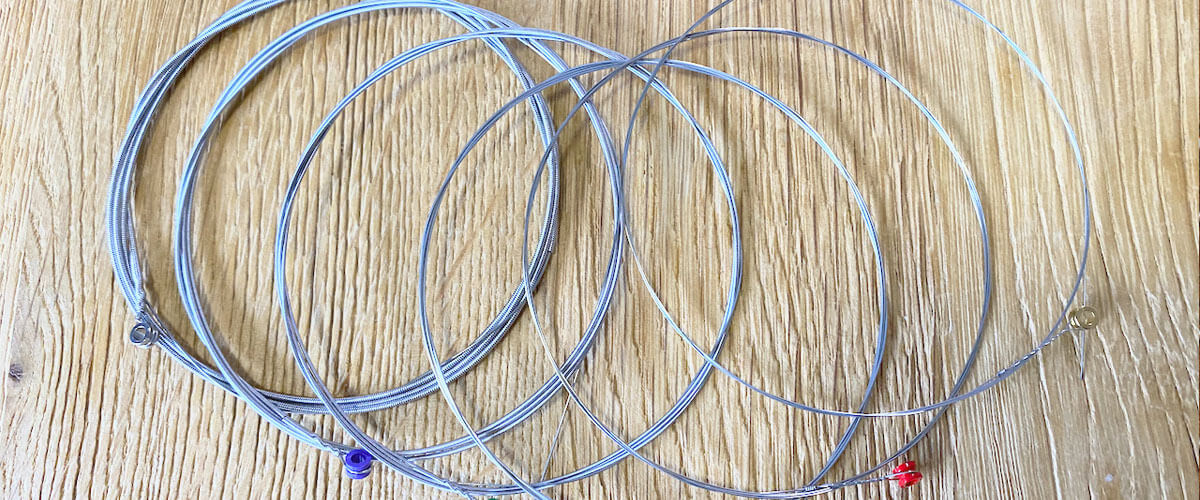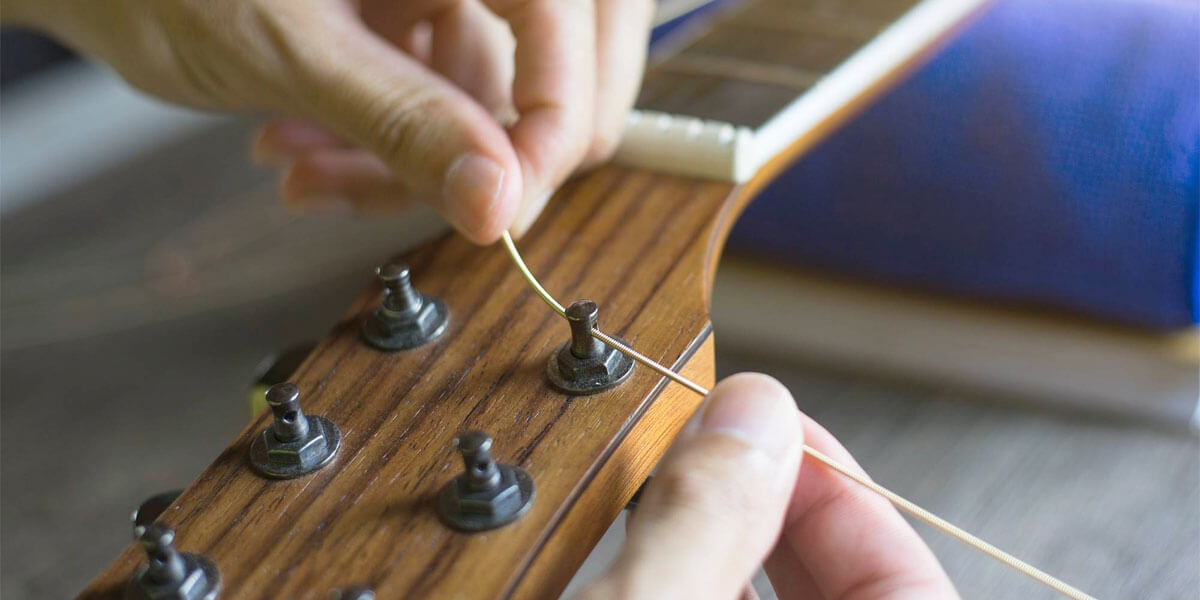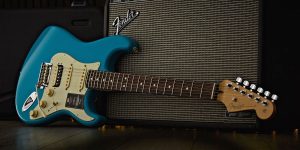When it comes to choosing guitar strings, musicians are presented with a multitude of options. One important distinction is whether to go for coated or uncoated strings. This choice between coated vs. uncoated guitar strings can have a significant impact on the sound, feel, durability, and maintenance of the strings. In this article, we will delve into the contrasts between coated and uncoated guitar strings, shedding light on the factors to consider when making your selection.
What are coated guitar strings?

Coated guitar strings have gained popularity among musicians due to their unique construction and benefits. These strings have a protective coating, usually made of polymer materials or utilizing nanotechnology. This coating acts as a barrier between the metal core of the string and external elements.
The process of creating coated guitar strings involves applying a thin layer of coating over the metal core. Common materials used for the coating include polytetrafluoroethylene (PTFE), polyester, or advanced nanocoatings.
The main advantages of this type of string are:
- increased lifespan.
- corrosion resistance.
- reduced finger squeak.
Recent advancements in nanotechnology have led to the development of ultra-thin coatings with exceptional protection and improved tonal characteristics.
Uncoated guitar strings
Uncoated guitar strings are a traditional type of strings that do not have any protective coating applied to them. They offer a more natural feel under the fingers. The absence of a coating allows for direct contact between the fingers and the metal core of the string, providing a familiar tactile experience.
Uncoated strings are known for their bright and vibrant tone. They tend to produce a crisp and articulate sound that emphasizes the natural characteristics of the guitar and the player’s technique. In addition, they often exhibit sustain and resonance compared to coated strings. The lack of a coating allows the strings to vibrate more freely, resulting in longer sustain and a fuller sound. They are also highly responsive to the player’s touch and playing style and have a wide dynamic range, allowing for expressive playing with nuanced dynamics and articulation.
While uncoated guitar strings may require more frequent string changes and are more susceptible to corrosion, they offer a traditional feel, bright tone, increased sustain, and dynamic response that many guitarists appreciate.
Difference between coated and uncoated guitar strings

String gauges and tension
The choice between coated and uncoated guitar strings can have an influence on the available options for string gauges and tension. Here’s how it can affect playability and tone:
| Characteristics | Coated guitar strings | Uncoated guitar strings |
|---|---|---|
| String gauge availability | Both coated and uncoated guitar strings are available in a wide range of gauges, from light to heavy. | Both coated and uncoated guitar strings are available in a wide range of gauges, from light to heavy. |
| Playability considerations | Coated guitar strings tend to have a slightly smoother surface due to the protective coating, which can affect the perceived tension and playability. I find coated strings to feel slightly looser or more flexible compared to uncoated strings of the same gauge. | Uncoated strings tend to produce a brighter and more resonant tone than coated strings. They can deliver a crisper sound and more harmonics, which some players prefer for certain styles of music like blues or rock. |
| Tonality variations | Coated strings often have a slightly warmer and mellower sound, with a reduced amount of brightness and sustain compared to their uncoated counterparts. | Uncoated strings generally offer a brighter, more vibrant tone with increased sustain. |
Lifespan and durability
When comparing the lifespan and durability of coated and uncoated guitar strings, there is a notable difference between coated and uncoated guitar strings to consider. The protective coating acts as a barrier against dirt, sweat, and oils. It helps prevent the accumulation of these substances on the surface of the strings, reducing the risk of corrosion and prolonging their life. As you may have guessed, ordinary strings are inferior in this aspect to their “protected counterparts”.
Tonal characteristics
Let’s consider the sound differences between these types of strings in terms of tonal characteristics.
| Characteristics | Coated guitar strings | Uncoated guitar strings |
|---|---|---|
| Tonal characteristics | The coating tends to slightly dampen the brightness and sustain of the strings, resulting in a warmer or mellower tone. Coated strings often exhibit a smoother, more balanced response across the frequency spectrum. | Uncoated strings are known for their bright and vibrant tone. They offer a crisp and articulate sound with increased sustain and resonance. |
Playability and feel
| Characteristics | Coated guitar strings | Uncoated guitar strings |
|---|---|---|
| Playability and feel | This smooth surface of the strings provides a more pleasant feeling under your fingers. This can enhance playability by reducing friction and string noise, often referred to as finger squeak. | Some musicians prefer the natural feel and grip of uncoated guitar strings. The absence of a coating allows for direct contact between the fingers and the metal core of the strings, providing a tactile connection and a sense of control. |
Application and genre considerations
| Characteristics | Coated guitar strings | Uncoated guitar strings |
|---|---|---|
| Application and genre considerations | The main feature is versatility and suitability for a wide range of musical genres! They are commonly preferred by musicians who value a bright, lively tone with increased sustain. Uncoated strings excel in genres such as rock, pop, blues, country, and folk, where a vibrant and cutting sound is desired. | Coated guitar strings are particularly beneficial when durability and minimal maintenance are crucial. As you already know, a protective coating helps extend the strings’ life and reduces the need for frequent string replacement. |
Ultimately, the choice between coated guitar strings vs uncoated depends on personal preference, playing style, and the specific requirements of the genre. You should consider factors such as desired tone, playability, longevity, and the specific demands of their musical applications when selecting the most appropriate strings for their needs.














